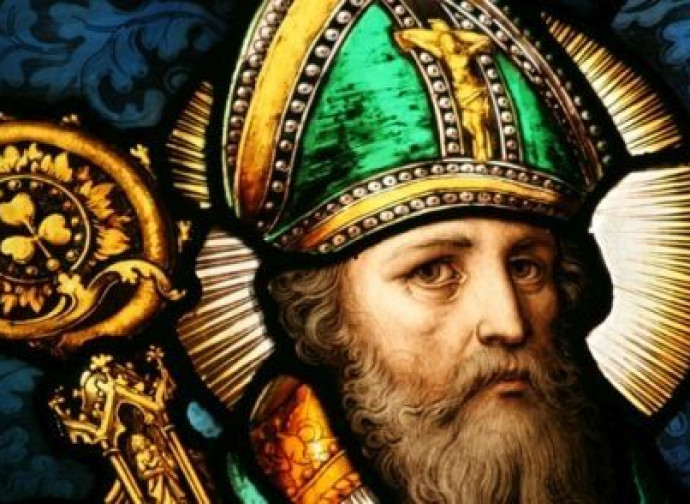Saint Patrick
He carried out such important missionary work that it represented a watershed in the history of Ireland

Considered the founder of Christianity in Ireland and celebrated as its main patron saint, Saint Patrick carried out such important missionary work that it represented a watershed in the history of the country, which soon became “the Island of Saints”. Land of Celtic paganism, whose rites included human sacrifices, Ireland experienced a very rapid spread of the Gospel and began to be populated with churches and monasteries, which proved to be formidable centres of spirituality and culture. It is easy to see why Saint Patrick's Day in Ireland is both a holy day of obligation and a national holiday, with a multiplicity of traditions linked to Saint Patrick (c. 387-461), who is a symbol of Irish identity itself.
Patrick was born in Roman Britain; his father was a decurion and deacon named Calphurnius. From Patrick’s Confession - a text written in his old age, rich in biblical references and with precious information about his life - we know that while he grew up he was not involved with the Christian faith. At almost 16 years of age he was captured and taken as a slave to Ireland, where he grazed his master's sheep for six years. His lost freedom made him discover prayer and encouraged his spiritual growth, which culminated in a radical conversion. “My love of God grew ever stronger”, wrote the saint, “and I did not notice any discomfort [...] because then the Spirit was burning within me”. One night he heard a voice in a dream that prophesied to him his imminent return to his homeland, which occurred shortly afterwards when he escaped by ship.
On his return to his family in Roman Britain, Patrick’s faith in Christ continued to deepen. Another night he saw “a man who seemed to come from Ireland, named Victoricus, carrying countless letters”. The man of the vision gave him one, which contained these words “The voice of the Irish”. While reading it, he thought he could hear these words from a multitude of people: “We entreat thee, holy youth, to come and henceforth live among us”. Patrick continued his training in Gaul, studying mainly in Auxerre, where he was ordained a priest by Saint Germain. When he was ready he left for Ireland as a missionary, favoured by his knowledge of the Gaelic language and the tribal culture of those peoples, which he had learned during his slavery. Tradition reports that on his return to the island he was not well received by the natives, who forced him to seek a landing point further north.
The Irish annals date the return of Patrick to Ireland to 432, where Saint Palladius had landed the previous year. According to Prospero of Aquitaine (c. 390-463) he was sent by Pope Celestine as the “first bishop” among the Irish. Patrick's biographers believe that Palladius was able to preach on the island for a short time because he was expelled by the King of Leinster. For his part, Patrick had to face the aversion of the Druids and the ferocity of leaders such as Coroticus. The latter had many baptized women kidnapped and many Christians killed, as reported in Patrick’s Letter to the soldiers of Coroticus, in which he defined those men “fellow citizens of the demons” and “allies of the apostate Picts and Scots”, admonishing them to convert. Despite the difficulties, the saint’s understanding of the clan system helped him to convert many chieftains and baptize “many thousands of people”.
Saint Patrick gave Ireland an ecclesiastical organization, founded the diocese of Armagh, of which he was the first bishop, and received the grace of ordaining many local priests and of witnessing many vocations to the monastic life flourish. According to tradition he taught the Irish the doctrine of the Most Holy Trinity by showing them the shamrock as a symbol of consubstantiality between the Father, the Son and the Holy Spirit. He called himself “the last among all the faithful” but in all his apostolate he always entrusted himself to Providence: “How could this happen in Ireland? Those who never before had knowledge of God, but until now served idols and similar evils, have now become the people of the Lord and are called children of God”.
Patron of: Ireland, engineers, invoked against serpents and sins.
Read more:
Confession of St. Patrick and Letter to the soldiers of Coroticus
